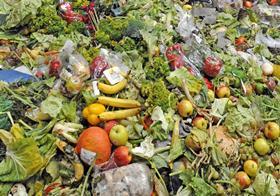
The scale of the UK's food waste problem was laid bare following a report that more than £1bn of food destined for UK supermarkets, or 7.2 per cent of all food harvested, is discarded or fed to animals before it leaves farms each year.
Awareness of the food waste problem has been rising steadily among shoppers, with many demanding that wonky and imperfect vegetables be sold by retailers rather than thrown away, and multiple start-ups launching to help redistribute surplus food.
This latest report, conducted by Wrap, the government-backed waste reduction body, is likely to lead to calls for more urgent action on the issue.
The report identifies 3.6m tonnes of food that is wasted in primary production, with crops rejected by retailers because they do not meet quality standards, or due to fluctuations in demand or problems during storage or packing.
This figure is more than ten times the amount thrown away by the retailers themselves, according to the report.
It includes 2m tonnes of surplus edible food that fails to reach a retailer or buyer and is diverted to feed livestock or distributed to charities, the rest being ploughed back into fields, composted or used to create energy.
Food waste is estimated at 1.6m tonnes per annum, or 3.2 per cent of all food harvested. Segmented by product type, horticultural crops reportedly make up 54 per cent of the total.
According to the results, sugar beet, potatoes and carrots make up more than half of the overall estimate for food waste in primary production (by weight), with the top ten products contributing 80 per cent of the total.
Other items of fruit and vegetables that made it into the top 20 most wasted food products were onions, cabbages, lettuce, apples, peas, parsnips, strawberries, Brussels sprouts and tomatoes.
Wrap director Peter Maddox said the study had helped identify key sources of waste. “There is huge potential to reduce the amount of surplus and waste by promoting best practice, and that’s where our work is now focused,” he said. “We want to increase redistribution of surplus food as has happened across the retail sector.”
The report pointed to various networks that have been set up, including the Food Surplus Network, Innovative Farmers, the Data Sharing Platform and the Food Waste Reduction Roadmap, to connect farmers and help them identify opportunities for surplus produce and gather data on food waste.
Major supermarkets and manufacturers have committed to reducing the UK’s annual £20bn food waste bill, signing up to halving waste from “farm to fork” by 2030.
The report’s authors stressed that, since the report was a combination of single-year studies, and given the strong influence of climatic conditions, pests and diseases on production, waste rates could not be expected to remain stable from season to season. They also warned that the report’s method of using self-reporting from farmers might well lead to an underestimation of the total amount of waste.